From Annette to Zola, we break down the best movies of the year.
This time last year, the film industry was positively besotten with the aftereffects of the COVID-19 pandemic, which hit every home and industry across the world but affected moviemaking (and releasing) in unique ways. Those effects rippled through into 2021, leading to an absolute glut of films, with more and more ways to access them: Big 2020 blockbusters were delayed to the following year, still others were released day-and-date on streaming services, some went straight to streaming. Virtual coverage of festivals persisted (at least in the first half of the year), giving more people the chance to see more of what the industry had to offer.
Movies, and the people who watch them, still haven’t fully recovered from COVID — not least because the pandemic is still with us in very real ways. But as we took our first furtive steps back into movie theaters, we were inundated with a host of fantastic movies. 2021 has been a great year for cinema, of auteurs returning to helm remakes of acclaimed classics to new names on the scene taking incredible chances with out-there premises. The musical returned with a vengeance, in both outre and classic forms (with Lin-Manuel Miranda involved in some capacity in most of them). Ridley Scott made two movies this year. America got Dune fever, and suddenly a heretofore “unfilmable” classic sci-fi novel became a mainstream pop culture mainstay.
In a sea of riches, we at The Spool sat down to present our no-frills, no-rankings, alphabetized list of the movies that made the biggest impact on us this year. [Clint Worthington, editor-in-chief]
Honorable Mentions: Shiva Baby, Summer of Soul, The Velvet Underground, Bergman Island, Belle, The Card Counter, The Tragedy of MacBeth, Labyrinth of CInema, Test Pattern, tick, tick… BOOM!, C’Mon C’Mon, The Matrix Resurrections, Beginning, Red Rocket, Benedetta, Bad Luck Banging or Loony Porn, Azor, A Hero, The Lost Daughter, Bergman Island, Petite Maman
All Light, Everywhere
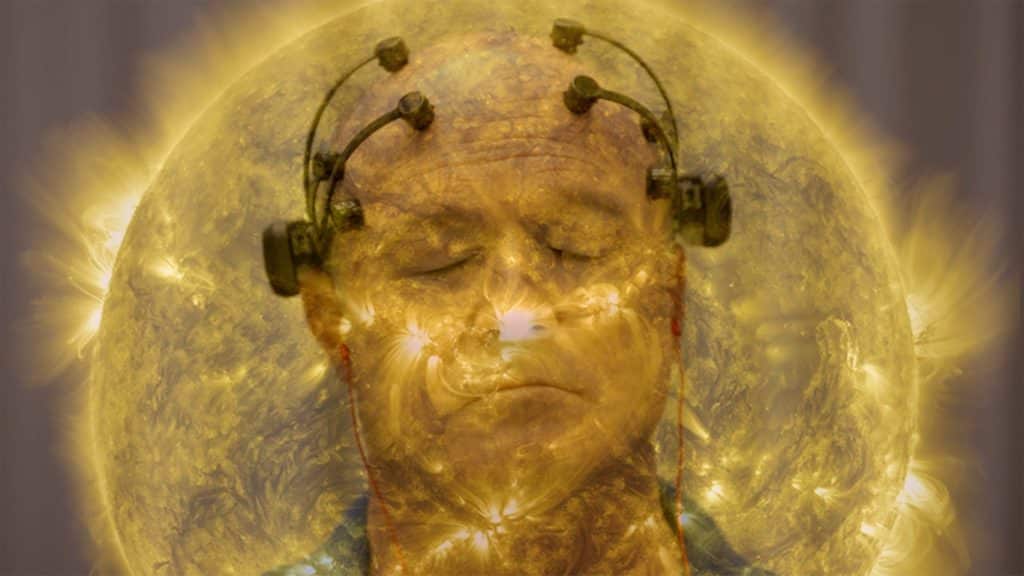
Theo Anthony’s All Light, Everywhere appropriately inverts the fourth wall in its first seconds with an extreme close-up of the filmmaker’s iris. A self-indulgent gesture that nonetheless embodies this fluidly rhythmic essay film about sight and its inherent limitations.
His approach ranges from the subjective to academic, shifting between distortions of traditional documentary modes and complementary historical asides that fill in the blanks often erased by common perception.
Dictated by the soothing narrator, Keaver Brenai, and interspersed with composer Dan Deacon’s sighing score; the form is its own act of dissonance. Not only to make its heady and prickly ideas about things like law enforcement body cameras go down easier. But one more affirmation of its curiosity about process.
Much of the film could be seen as an unaccepted history of bias, but that’s not an end. If there’s a traditional call to action here, it’s a goal for collective awareness. [Michael Snydel]
Read our review here.
Annette
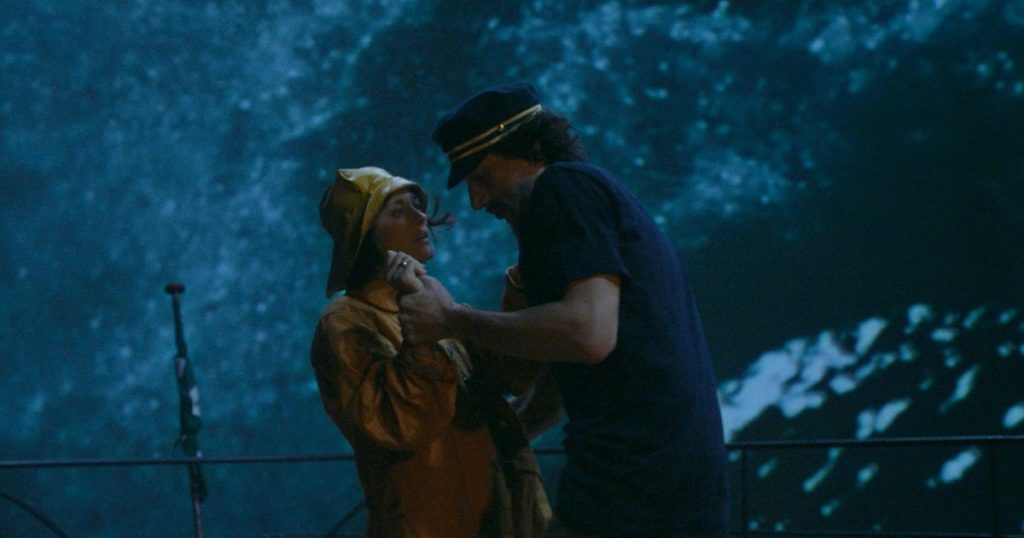
Leos Carax and art-rock sibling duo Ron and Russell Mael (of Sparks) join forces for this sometimes lovely sometimes harrowing sometimes both musical. Marion Cotillard and Adam Driver are a creative couple (an opera singer and a scathing comedian) who love each other so much. Carax and Sparks trace what happens when that love curdles—when a person’s idea of themselves eats their real self and anyone they care about. And those who don’t get eaten? They’re still left with scars, none more than the primarily-a-puppet title character. Carax’s screen craft is daring, whether biting, sweeping, or gleefully absurd. Cotillard and Driver’s dives into how love turns sour and wrath makes beasts of people are splendid both individually and as a duet. And the tunes rule, from Driver and Cotillard’s swooning to Simon Helberg laying out his duties as an accompanist. The earworms. They abound. [Justin Harrison]
Read our review here.
Bad Trip
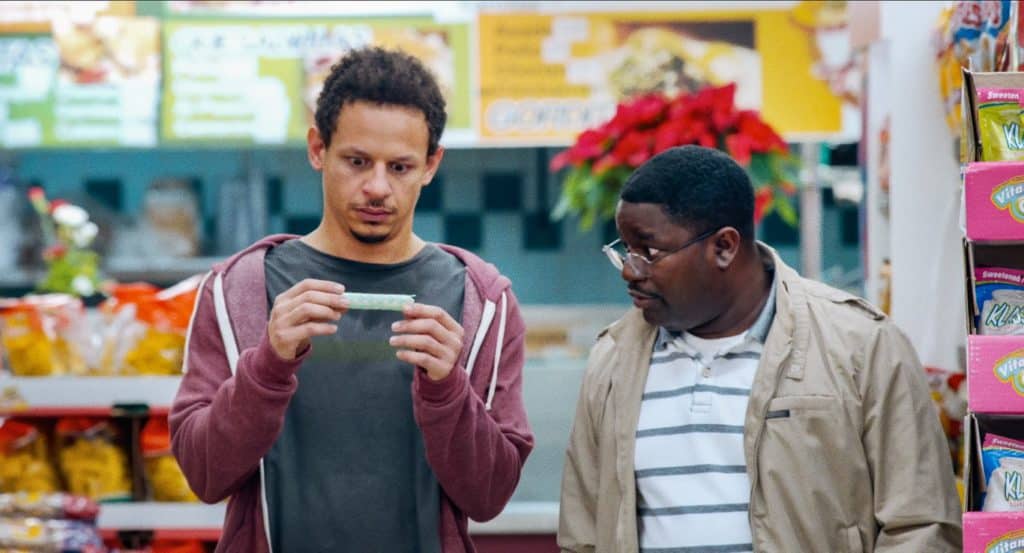
Eric André has been mercilessly pranking people on t.v. for nearly a decade. Taking his talents to the big screen, Bad Trip strings together André’s knack for deceiving innocent bystanders into a shockingly intelligible narrative of two friends chasing their dreams. Joined by Tiffany Haddish and Lil Rel Howery, André pursues his high school crush, losing all of his clothes in the process because of a vacuum mix-up (that’s just the opening scene). Blurring the line between the conventions of a hidden camera show and a studio comedy, Bad Trip emerges not just a successful and inventive experiment, but also the year’s funniest movie. [Jonah Koslofsky]
Barb & Star Go to Vista del Mar

In a world where “nice” is interpreted as “naive” or “phony,” what strange pleasure was found in Barb and Star Go to Vista Del Mar, a silly but extremely good-natured comedy in which middle-aged best friends (Kristen Wiig and Annie Mumolo) find adventure, romance, and danger on a trip to a Florida beach resort. With help from a wonderfully game Jamie Dornan, Wiig and Mumolo turn every cliche about romantic comedies, action thrillers, and how women over 40 are treated in pop culture on its head, all without a mean bone in the film’s body. It also has some truly inspired moments of weirdness, including Andy Garcia as the real-life incarnation of Tommy Bahama, and a crab speaking in the voice of a Morgan Freeman soundalike. It’s impossible not to love it. [Gena Radcliffe]
Read our review here.
Days
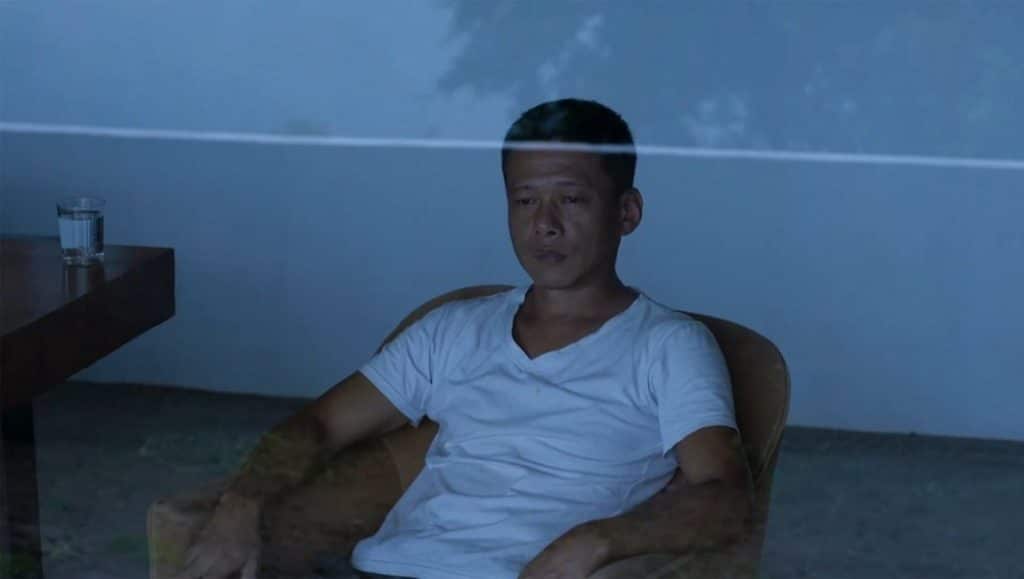
For some uninitiated with his style, Tsai Ming-Liang’s characteristically hyper-focused, minutely attuned Days, has been characterized as a marathon. This is indeed a film where someone chips away at heads of lettuce for minutes on end in a single set-up. A dozen-plus films in, the deliberate Taiwanese auteur has perfected this aesthetic. He replicates sensations of being dwarfed by the world around you – whether dangling your feet over a sewage ravine or sidling through a busy side street. Tsai’s films are overwhelming in their intimacy and disconnection. Until you reach a scene where two people connect with a brief, charged moment of release. That single moment is all that’s needed to make it worth any difficulty to find his wavelength. [Michael Snydel]
Read our review here.
Drive My Car
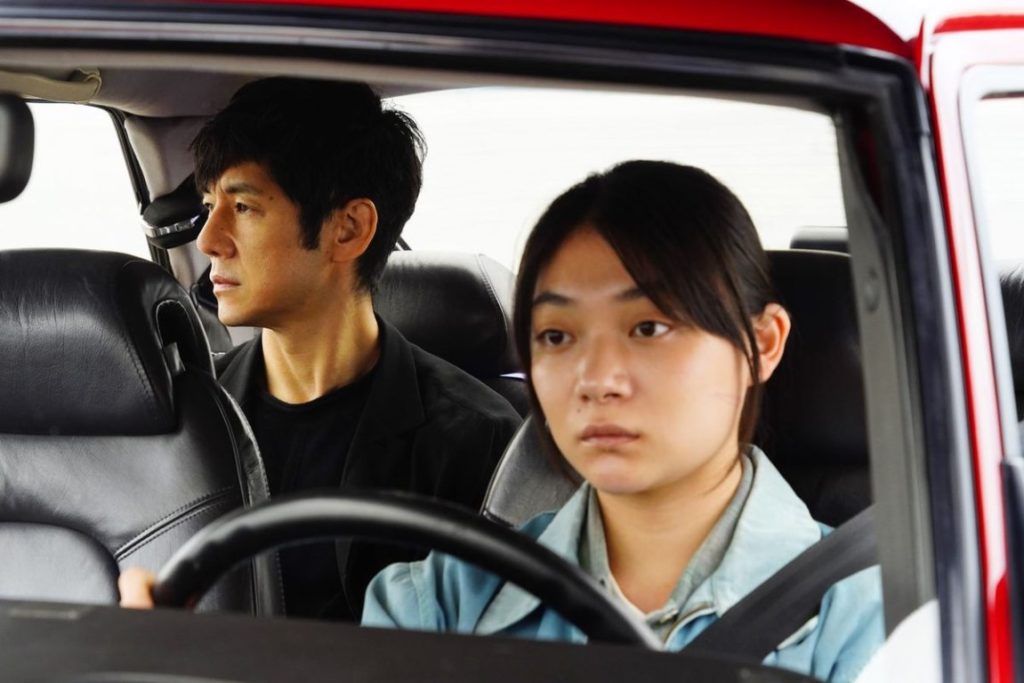
It’s a heck of a thing to live with grief in the long term, especially when that grief is complicated by unresolved history and processed in part through methods that may be as much about coping as they are about continuing to live. Actors Hidetoshi Nishijima and Tōko Miura grapple with those facts as a theater director/actor and a professional driver, brought together by a directorial residency’s liability policy and bonded by a shared need to work through their baggage. Director Ryûsuke Hamaguchi and co-writer Takamasa Oe take their time studying this duo, and it’s time well used. Nishijima and Miura take the rhythms of their duo’s work, especially when on the road, and use it to build two deeply compelling guarded, hurting, folks who may yet be able to pull each other through. Hamaguchi’s direction is similarly careful and precise, especially when it comes to sound. [Justin Harrison]
Read our review here.
Dune
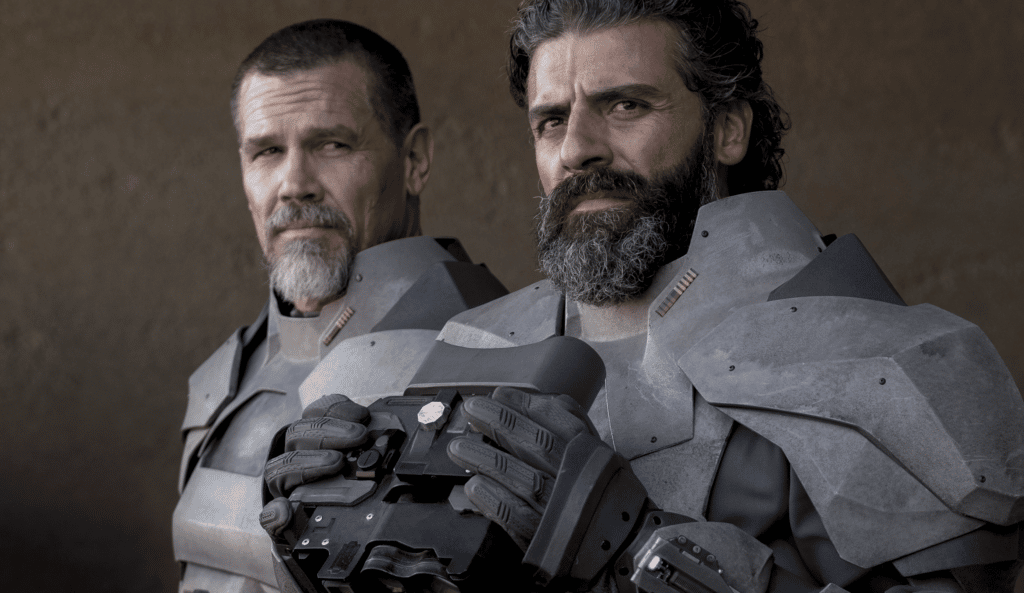
In a year when so many blockbusters either disappointed or found themselves unceremoniously dumped onto streaming services (or both!), Dune stands tall. Denis Villeneuve’s smart adaptation impresses on its sheer scale and scope alone – you’ll believe a giant space harvester is crushed by a giant sandworm! – but its greater feat is managing to turn dense source material into a coherent and recognizable story. This isn’t to say this “Part 1” is cookie-cutter: “Duncan Idaho” and a Harkonnen throat singer would beg to differ. Rather, Villeneuve has nailed the atmosphere of this science fiction, crafting a film just as big – and weird – as it should be. Bring on Part 2! [Jonah Koslofsky]
Read our review here.
Evangelion 3.0+1.0: Thrice Upon a Time

My favorite movie of the year, a genuine no-nonsense miracle. After decades and a whole lot of strife, Evangelion creator Hideaki Anno has brought his deeply personal, deeply idiosyncratic giant combat cyborg interpersonal drama to a close with a gorgeously animated film that is simultaneously astonishingly grand and strikingly intimate. This is an apocalypse that remembers that one of the word’s meanings is “revelation.” The personal worldviews of Evangelion‘s long-suffering cast are put through crucibles ranging from an all-too-rare chance to rest and heal to beautiful, terrifying psychedelia so that they might, at last, know themselves. As wildly varied as these segments are tonally, the film is marvelously coherent both emotionally and narratively. This is, for all its zonkery, a film to make the heart soar. Plus, hey, the giant cyborgs are flipping cool, and they’ve got a hell of a last dance. [Justin Harrison]
Flee
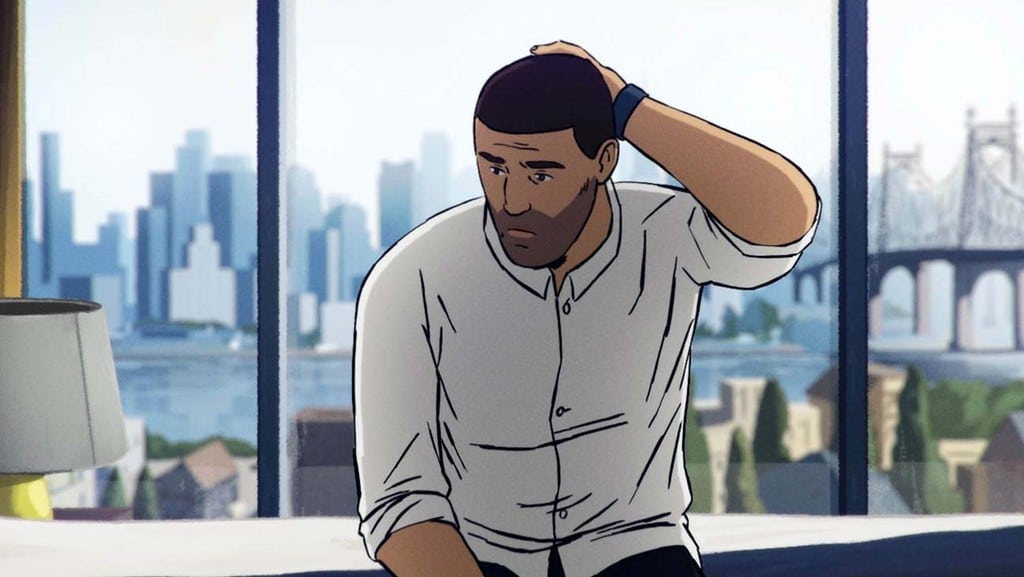
As a teenager, director Jonas Poher Rasmussen met Amin, a quiet, unassuming Afghan refugee, who’d been smuggled out of the country by himself to spare him the horrors of the Afghan Civil War of the ’80s and ’90s. The friendship that resulted eventually led to Rasmussen unpacking Amin’s experiences in Flee, a sparse but emotionally rich documentary that blends vivid reenactment with striking animation to chronicle the difficult task of unpacking our pasts in order to move forward into the future. It’s not just about Amin’s struggles with loneliness, of feeling adrift without his family or the culture/country in which he was born; it’s also invested in his gradual acceptance of his homosexuality. There’s a grace in Rasmussen’s unassuming, empathetic approach, the intimacy by which he and Amin relate drawing us into his various traumas in ways that don’t read as exploitative, but cathartic. [Clint Worthington]
The French Dispatch
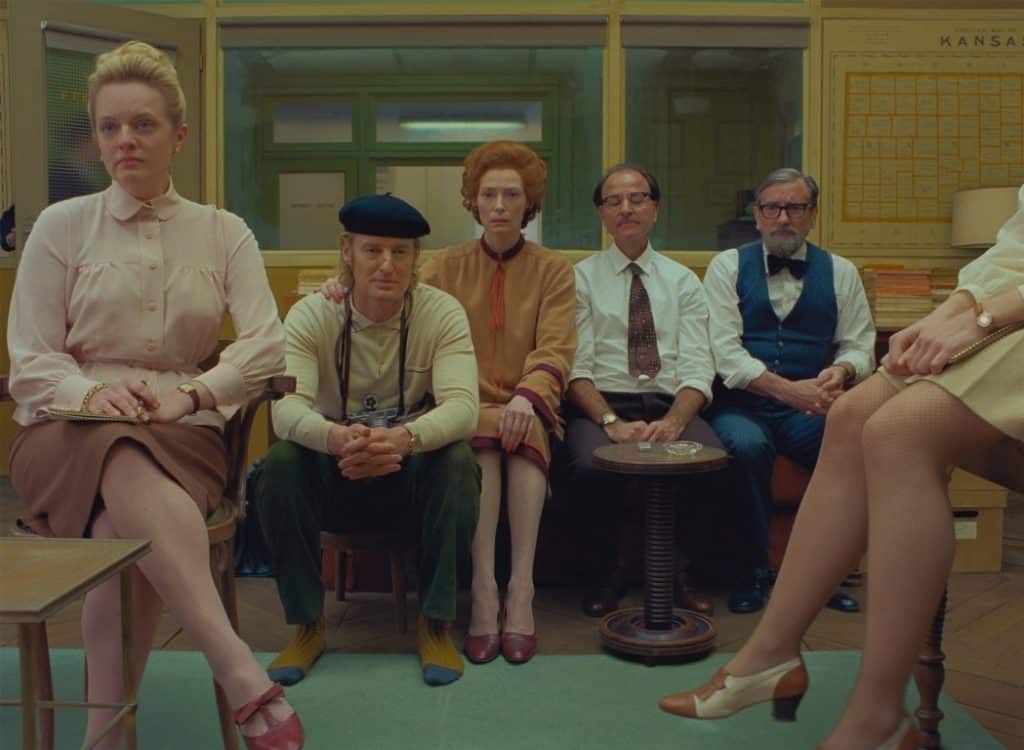
Wes Anderson has long been dismissed by detractors as favoring aesthetic over emotion, and if The French Dispatch doesn’t change their mind about that, then nothing will. A love letter to The New Yorker at a time when print publication is hanging on by a thread, The French Dispatch centers three beautifully different stories on art vs. commerce, youth in revolution, and existing as a stranger in a strange land. Though it features career-best performances from Benicio del Toro and Adrien Brody, the MVP of The French Dispatch is Jeffrey Wright, reliable in everything he does but commanding the screen here as a fictionalized version of James Baldwin, his rich voice holding down the film and keeping it from getting too caught up in its own quirkiness. It’s a feast for both the eyes and the ears. [Gena Radcliffe]
Read our review here.
The Green Knight
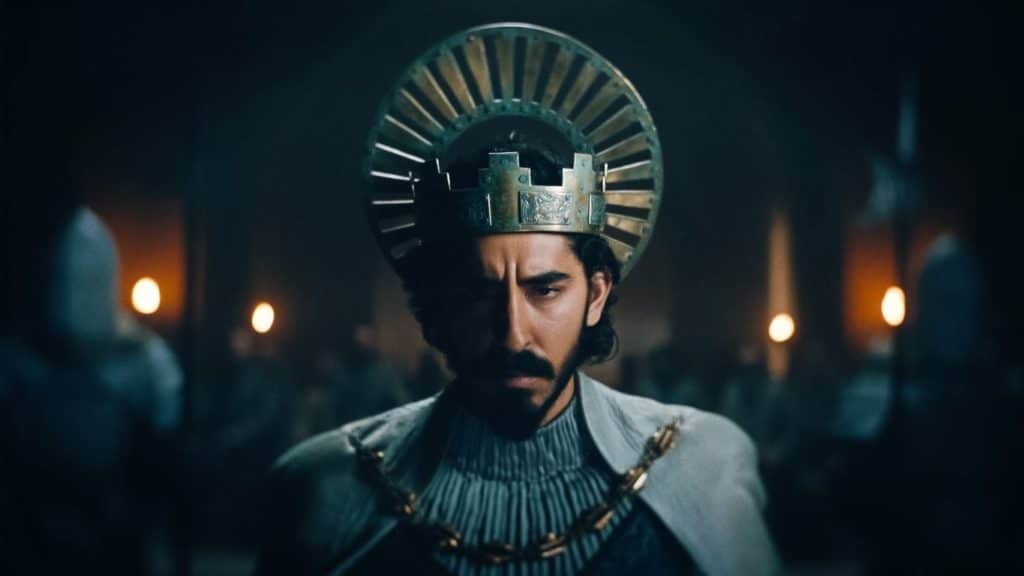
What a bizarre, unsettling dream David Lowery’s The Green Knight is, and how audacious it is to be a faithful adaptation of a 14th-century tale, with little interest in making it more accessible to a modern audience. Dev Patel redefines the meaning of “smoldering” as the well-meaning but callow Sir Gawain, who, in a show of mostly hollow bravery, finds himself tied up in a test of bravery with the titular knight (Ralph Ineson) that he seemingly cannot win. The further Gawain gets from home, the weirder things seem to get for him, as if he’s being punished for the mere act of stepping away from his station in life. You might not understand everything that happens in The Green Knight (or rather, I didn’t), but the half-fairy tale/half-nightmare imagery in it will stick with you longer than any superhero movie will. [Gena Radcliffe]
The Last Duel
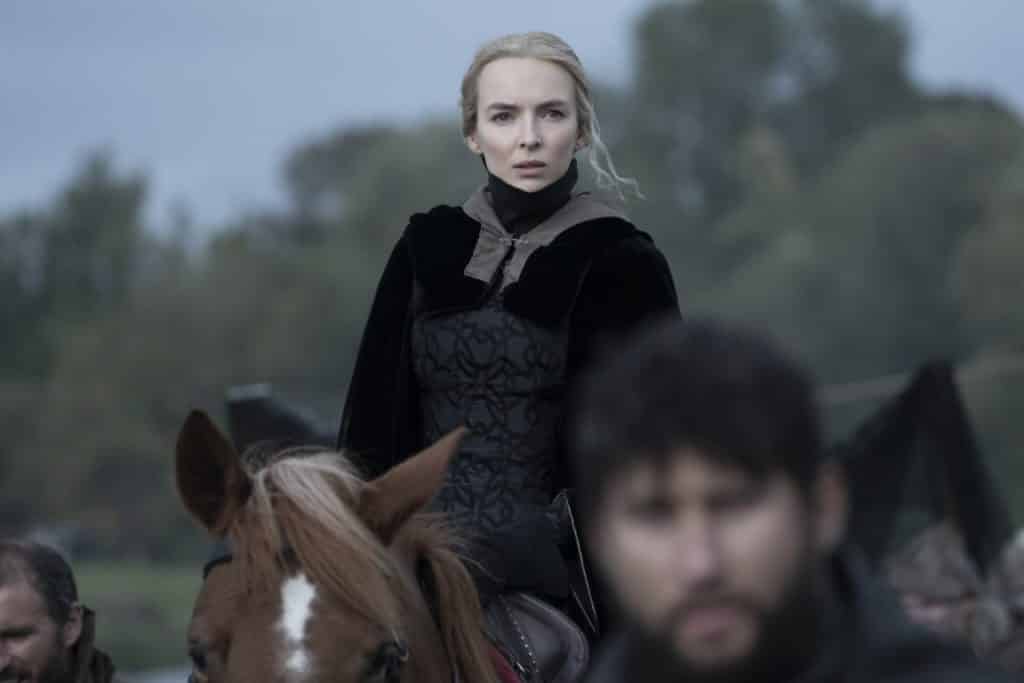
Ridley Scott’s double feature this year was a one-two punch of women tackling the various masks and performances they had to endure to survive in environments that were hostile to them. But while House of Gucci was perverse fun in spurts, it doesn’t hold a candle to the underappreciated high-wire act that was The Last Duel. A tripartite parable depicting the leadup and aftermath of the rape of a knight’s wife (Jodie Comer) in 14th-century France, Scott (and screenwriters Nicole Holofcener, Ben Affleck, and Matt Damon) meticulously chronicles the individual and systemic failings of its world (and ours) to protect women and punish the men who hold sway over them. It’s unsubtle and delivered with no small slice of Christmas ham (especially by Affleck’s goofy, blonde count), but it’s a tonal juggling act that should be seen to be believed. [Clint Worthington]
Licorice Pizza
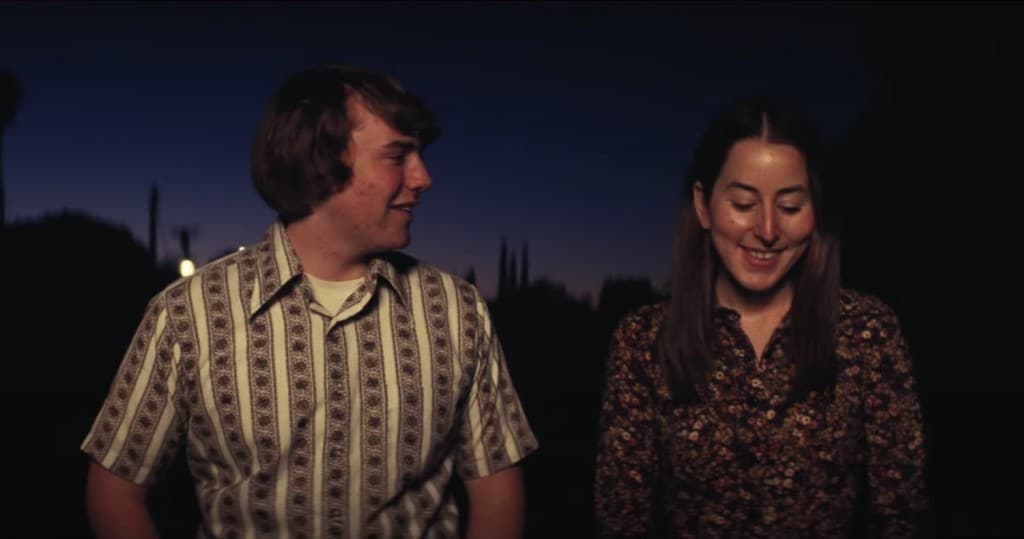
Through a pair of debut performances (Alana Haim and Cooper Hoffman, both fabulous), Licorice Pizza embodies the wild ups and downs of being young – of being alive. Everything’s always in flux, a breakneck sprint between harrowing episodes, separations, and reconciliations, from reckless motorcycle stunts to waterbed sales. This isn’t exactly the first P.T.A. trip to the San Fernando Valley, but it’s easily his loosest movie. Yet you can’t miss the persistent bite to this stroll down memory lane – after all, Haim’s performance communicates a quarter-life crisis in motion. How exactly is one supposed to exist in such a chaotic landscape? Together, Anderson seems to answer. Watching Licorice Pizza helps, too. [Jonah Koslofsky]
Passing
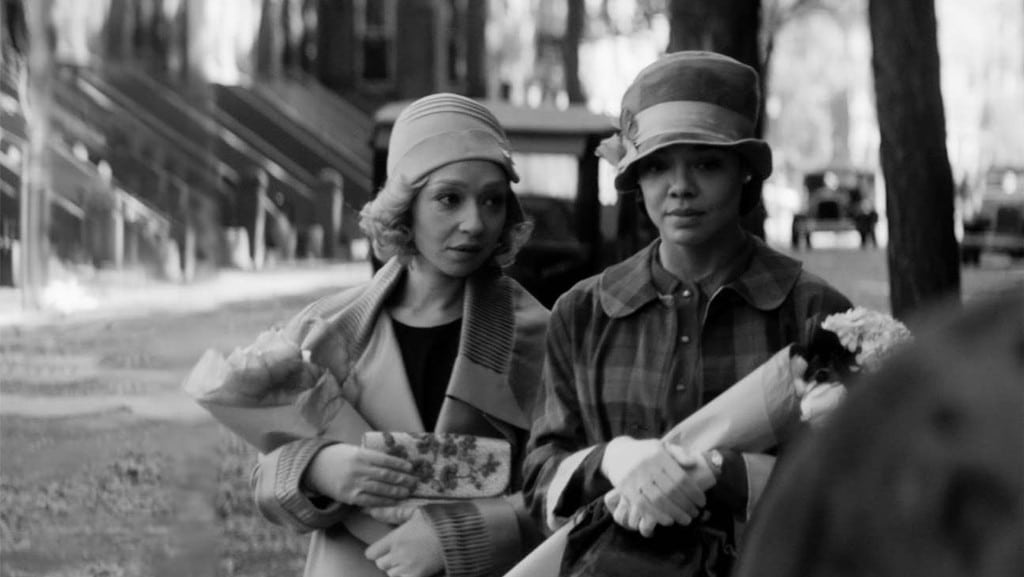
After a 2020 in which conversations about race in America reached a fever pitch (and a 2021 in which little to no action was taken as a result), Passing feels particularly trenchant in its examination of Black social mobility and its seeming ineffability. Adapted from the Nella Larson novella of the same name by Rebecca Hall (making a stunning directorial debut), the film follows two Black women (Tessa Thompson, Ruth Negga) who exist at varying levels of ‘passing’ for white in 1920s New York City. At first, it’s a tender, if challenging look at the ways Black people used to (and often still do) downplay their Blackness in order to survive and thrive in white-dominated society. That it slowly twists and morphs into a borderline-Hitchcockian tale of boiling resentment and sublimated queer desire makes its rewards — and its striking black-and-white photography — makes it all the more enticing. [Clint Worthington]
Read our review here.
Read our interview with director Rebecca Hall here.
Pig
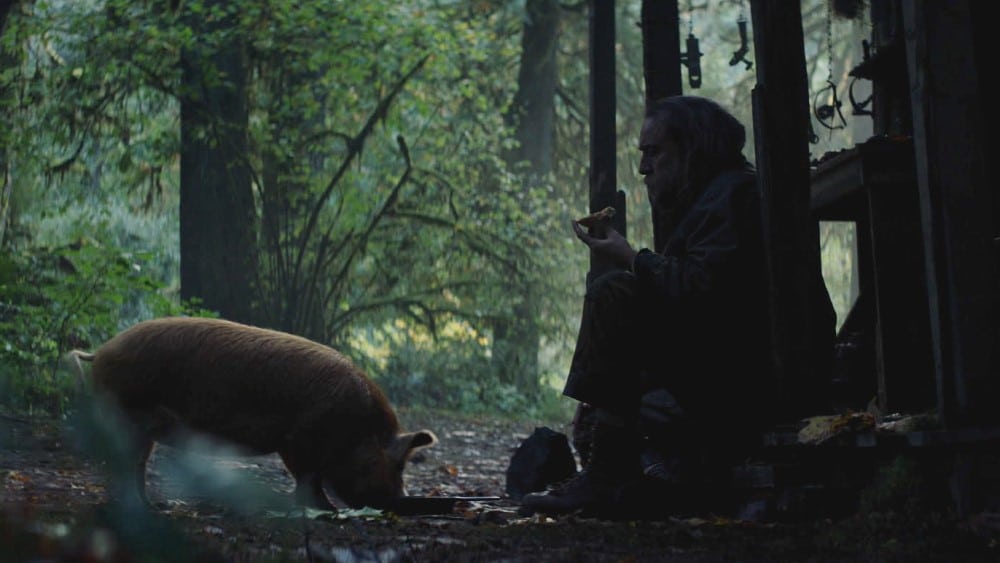
When it was announced that Nicolas Cage was going to star in a movie about a hermit who goes on a rampage after his pet pig is stolen, it was understandably assumed that it was going to be another one of Cage’s baffling choices, to be released without ceremony and then forgotten. Instead, Michael Sarnoski’s Pig turned out to be one of the most sensitive, insightful films of the year, anchored by Cage’s performance as a man so grief-sticken after his wife’s death that he goes into seclusion, with a pet pig as his only companion. The mystery behind why his pig is stolen is second to Cage remembering how it feels to empathize with other people who’ve experienced loss, even those who have done him wrong. Pig never becomes the lurid thriller you’d expect it to be — instead, it becomes something much more unique, a story of how something so simple as a meal or a glass of wine can trigger our memories, and break our hearts, over and over. [Gena Radcliffe]
Read our review here.
The Power of the Dog
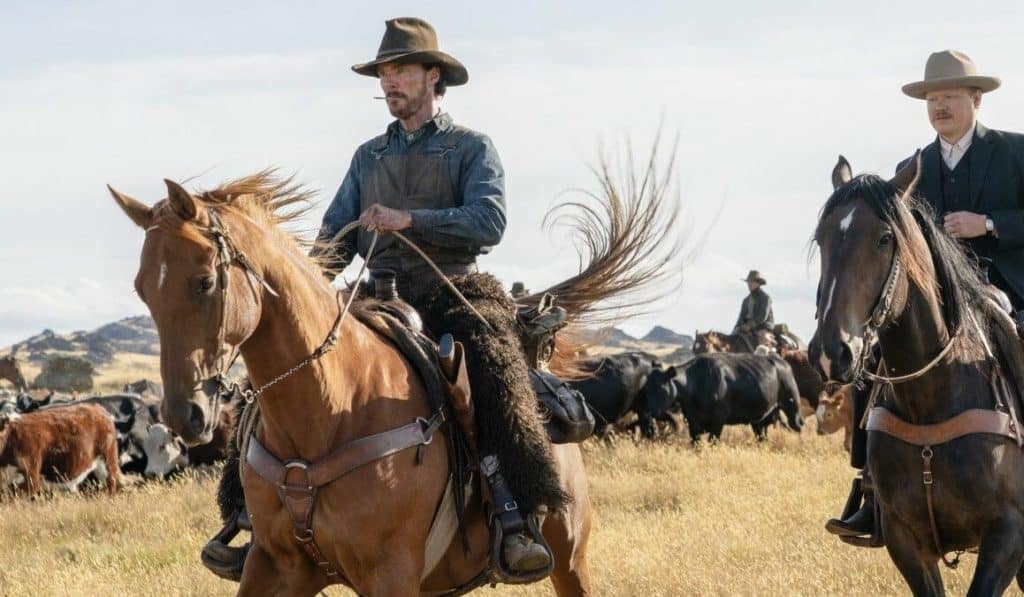
Like the Hideo Kojima villain’s tattoo sez, “Man is a wolf to man.” Benedict Cumberbatch’s Phil Burbank is a rancher at the tail end of the West, a vicious snarl of a man who bullies his brother George (Jesse Plemons), sister-in-law Rose (Kirsten Dunst), and nephew Peter (Kodi Smit-McPhee) for not matching his idea of manliness and to keep the fire burning on his performance of that manliness. Because that fire’s all he’s got. Writer/director Jane Campion crafts a sinuous western. She uses the vastness of 1920s Montana to show how deeply loneliness can eat away at people and how those same people can make themselves small through their very efforts to tower. In a splendid long-form character study, Cumberbatch, Smit-McPhee, Dunst, and Plemons unwind Phil. Their work illuminates his humanity—in all its venalities and complexities. [Justin Harrison]
Read our review here.
The Sparks Brothers
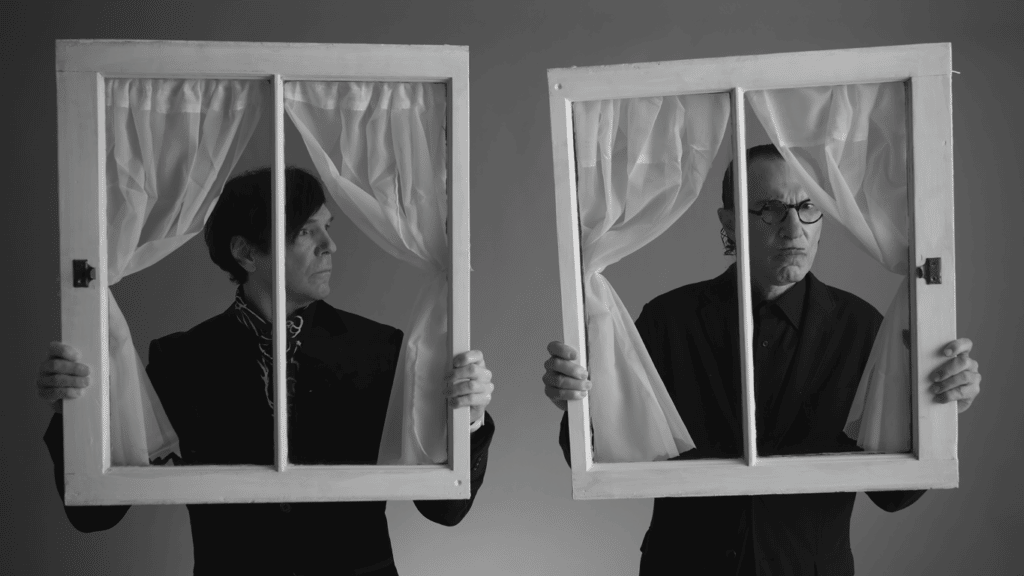
Have you heard the good word about Sparks? They’ve been around since the ’60s, but they’re only just getting their due now in Edgar Wright’s exhaustive, very loving documentary. Where some bands have simply recycled the same four or five notes for decades, Sparks are an illustration in staying ahead of the curve, changing their sound from album to album, even if it meant more flops than hits. Ron and Russell Mael’s commitment to weirdness never feels forced or phony, but rather the only way they know how to be, an admirable quality in an industry that relies on homogeny to ensure success. Though its considerable length might suggest The Sparks Brothers is strictly for superfans, its breezy, playful tone, incorporating both the usual performance footage and animated sequences, makes it welcoming to newcomers, giving Sparks the massive fanbase they deserve after all this time. [Gena Radcliffe]
Read our review here.
The Souvenir Part II
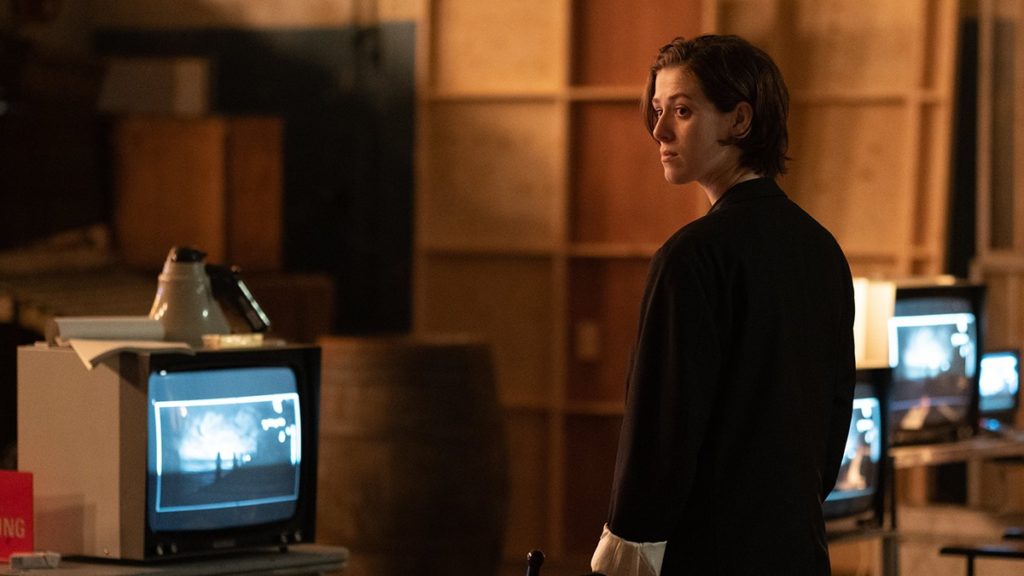
It’s been a little while since Julie (Honor Swinton Byrne) got out of her abusive relationship with Anthony (Tom Burke). He’s now dead; she’s crafting her thesis film for school. In Joanna Hogg’s continuation of the 2019 original, the concept of reckoning with one’s emotions is difficult because it’s impossible to be fully internal. The act of compartmentalizing the past, to truly do it justice, is to project it onto others. The pain doesn’t fully disintegrate. It spreads onto others, thinner and thinner onto more and more until it manages to cease. The Souvenir Part II marks one of the finest depictions of coping with trauma in its trust to the audience, blending metatext and activating one’s memory to refreshingly mature effect. [Matt Cipolla]
Read our review here.
Spencer
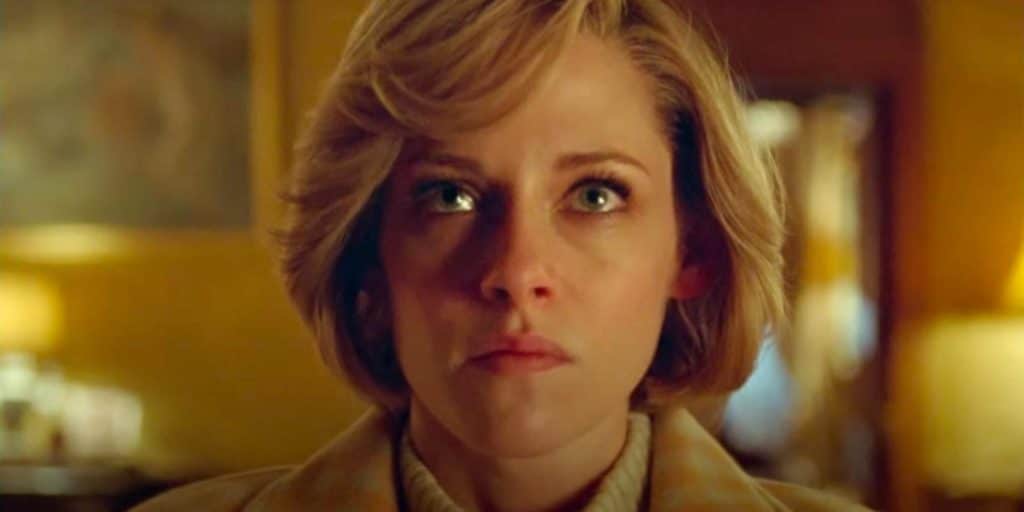
In which Kristen Stewart plays Diana of Wales in a fable about keeping one’s humanity in a fundamentally anti-human environment. The British Royal Family’s insistence on personal and public selves that must simultaneously be entirely separate from the real person and the whole of that real person, an insistence abetted by the largely callous staff lead by Timothy Spall’s thin sneer and rules-lawyering. Director Pablo Larraín and writer Steven Knight weave a cold, at times horrifying Christmas holiday on the royal estates. Stewart jumps her Diana from thread to thread as she and her vanishingly few allies (Sally Hawkins and Sean Harris both distinctly and wonderfully warm). It’s stupendous work, a performance built on Diana’s loneliness, the knowledge that she needs to get out despite its apparent impossibility, and the rare moments where she gets to live. Stewart and her collaborators have made an eerie, bittersweet picture. [Justin Harrison]
Read our review here.
Titane
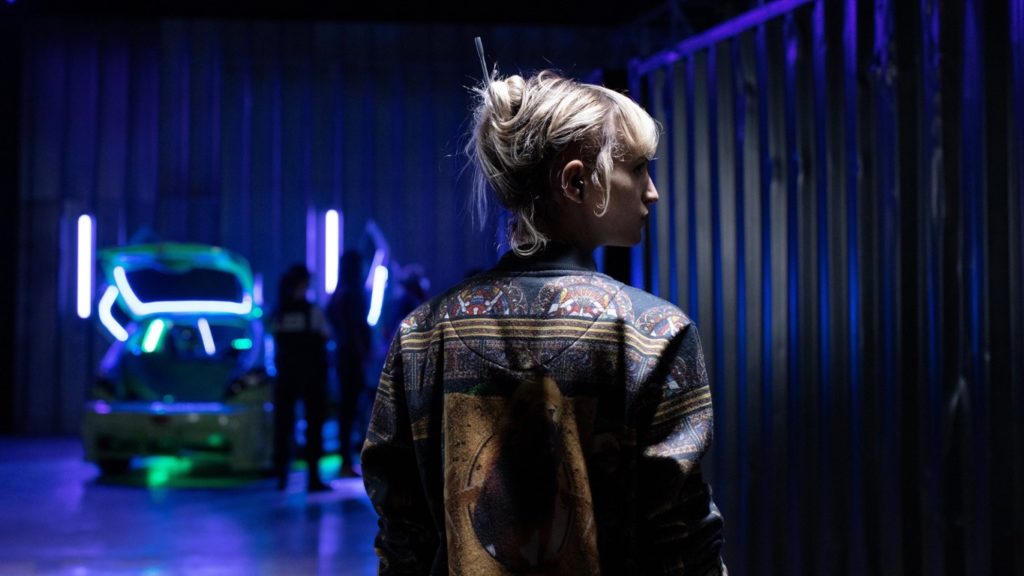
Julia Ducournau’s follow-up to Raw was, and for some likely still is, seen as “that movie where a serial killer (Agathe Rousselle) gets pregnant from fucking a car.” Beyond that, it’s something far more introspective: A tale of the death of gender and the hope in purging that binary. It’s about appreciating the cold, dead life force of machinery and growing through its lack of pretense. It’s the departure from femininity as performance and masculinity as a mask, which, while complementary to each other, remain equally vacant beyond theatrics. As the skin comes to reveal the hardware beneath and the pinks and blues bleed into lights more frigid, the only productive thing is to move that lack of gender further. It’s the only way to actually connect. [Matt Cipolla]
Read our review here.
Undine
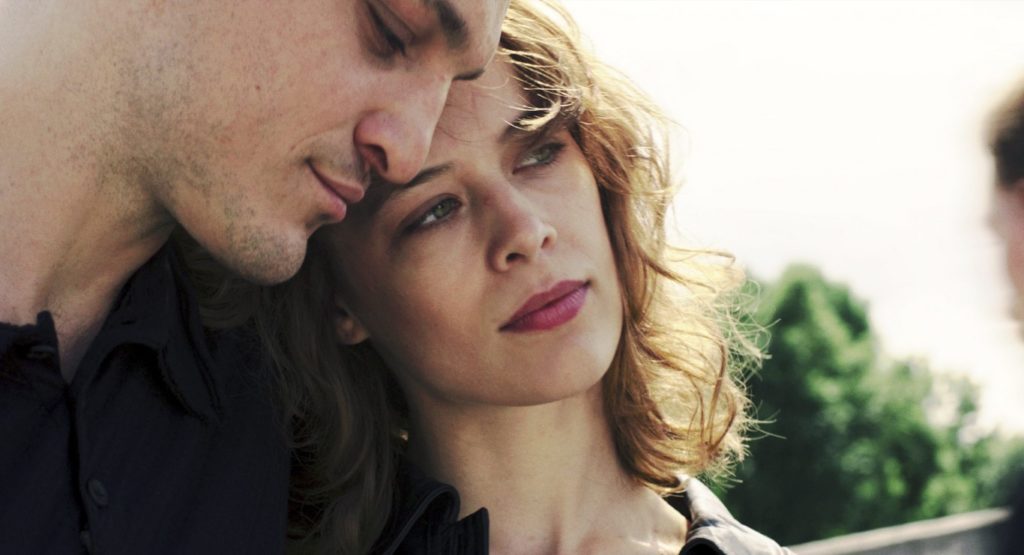
A sketch of the ancient European myth, the serenely enigmatic Undine mostly resembles the fable in its cosmic uncertainty. It instead revels in more grounded mysteries like déjà vu or unlikely coincidence. It also reveals more chemistry in a recitation of a lecture about the historical intersections of geography and architecture in Germany than fish-out-of-water pratfalls.
Reuniting Transit’s Paula Beer and Franz Rogowski, Christian Petzold latches on to the two performers’ natural urgency with each other to conjure a different kind of ghost story. As beholden to traffic as the sudden explosion of a fish tank. All to a lightly elegiac coda that reminds you why Petzold is one of our finest living directors. [Michael Snydel]
Read our review here.
West Side Story
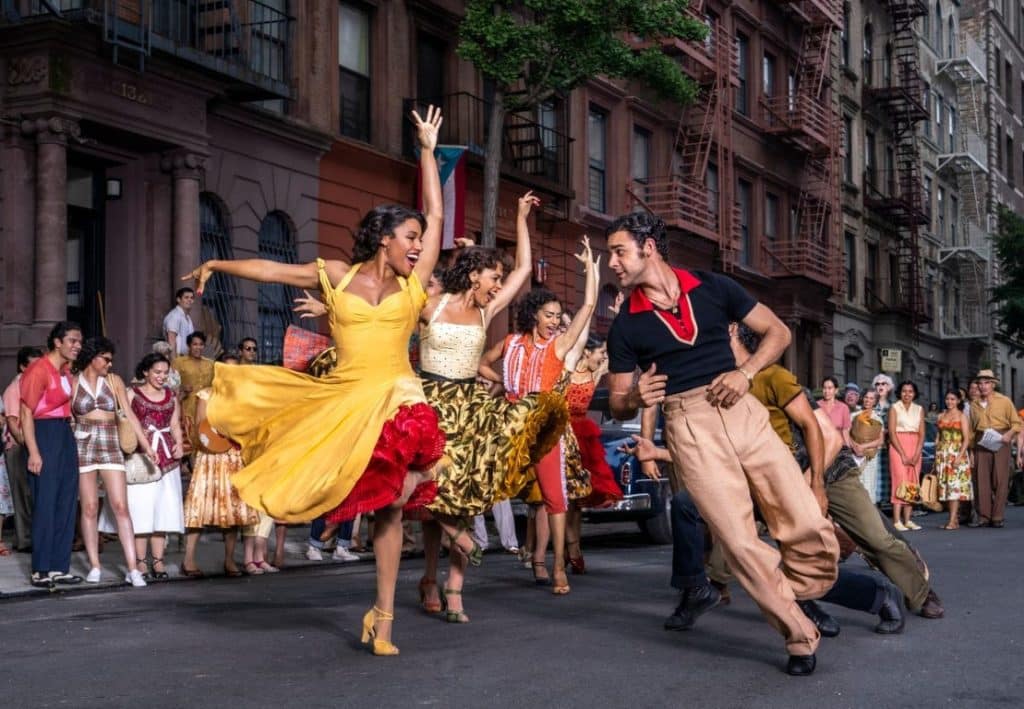
It’s truly astonishing that Steven Spielberg hasn’t made a musical until now (the opening sequence of Temple of Doom aside). And of course, now that he has, one of the last great stewards of old-school Hollywood filmmaking has pulled out an utter miracle, revitalizing the Stephen Sondheim/Leonard Bernstein musical for a new era that still feels steeped in the traditions of the Robert Wise film that preceded it. Tony Kushner’s script shifts plot beats, character moments, and the order of songs in ways that feel organic and lend new context to the original Romeo-and-Juliet story, and the hazy glow of Janusz Kaminski’s cinematography glides you from one unstoppable image to the other. Ansel Elgort aside (for reasons beyond his cancellation; he’s super flat here), the cast is incredible, from Rachel Zegler’s triumphant Maria to Ben Faist’s wily Riff. It’s a thing of rare beauty, the reason movies should be a collective experience, shared in a dark theater. [Clint Worthington]
Wheel of Fortune and Fantasy
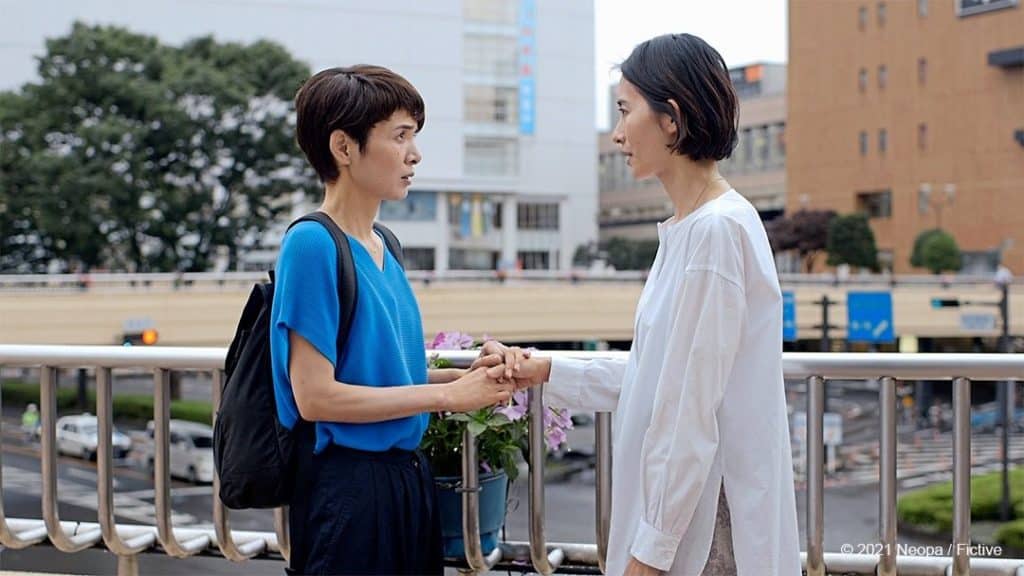
With Wheel of Fortune & Fantasy and Drive My Car, Japanese director Ryûsuke Hamaguchi experienced an unexpected (and heartening) ascent into a festival heavyweight. Drive My Car’s audacious scope grabbed more of the laurels, but this may be the bigger achievement.
One of the best anthologies of this century, Hamaguchi’s triptych perceptively dissects pet themes like infidelity, inexperience, and disconnection with individual depth that surpass most feature-lengths.
Recent efforts like the Happy Hour and Asako I&II soaked in their protracted running times, but it’s the measured accelerations that distinguish this. Swathes of time pass without fuss, characters emerge and disappear, people change. Yet, these segments dial into their intentions without sacrificing character or a meditative rhythm to only casually devastate the viewer with a few lines. And they’re crowded with performers who so inhabit their roles that it barely registers that the entire story was set in a classroom or the backseat of a car. [Michael Snydel]
The Worst Person in the World
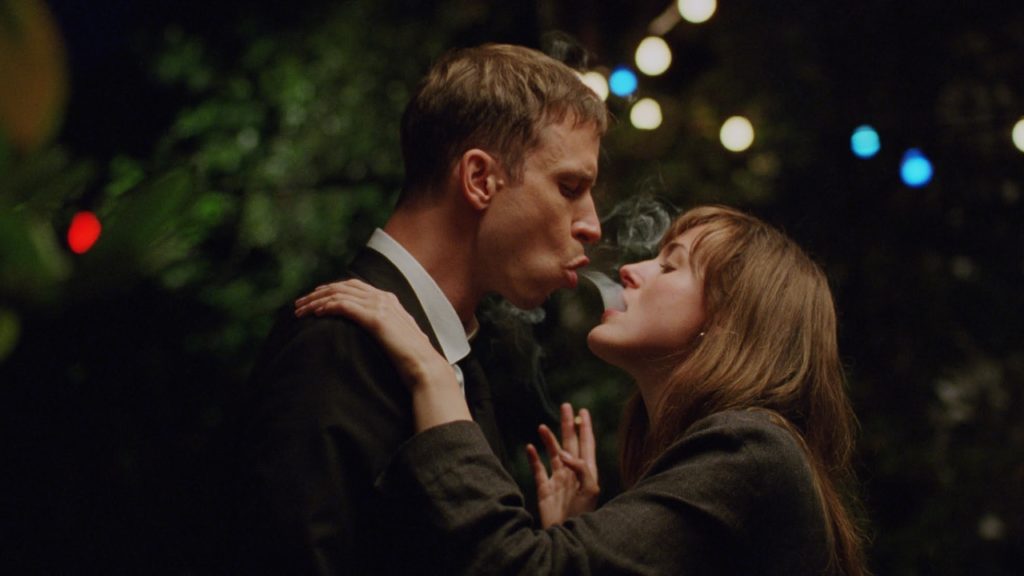
No, the protagonist of Joachim Trier’s final chapter in his “Oslo trilogy” isn’t actually the worst person in the world. But in her impulsivity and inability to get her life together, Julie (Renate Reinsve) certainly feels like she is. Inventively structured over twelve chapters and an epilogue, The Worst Person in the World is a darkly funny impression of the anxiety that takes hold once you hit 30 and realize you have no idea where your life should go. Should you get married? Become a parent? Pick a career and stick to it? Trier has no easy answers for these questions, and in the asking, he treats us to unexpectedly vivid filmmaking (see Julie’s fantasy sequences in which the whole world stops or a deceptively strong mushroom trip) along the way. [Clint Worthington]
Zola
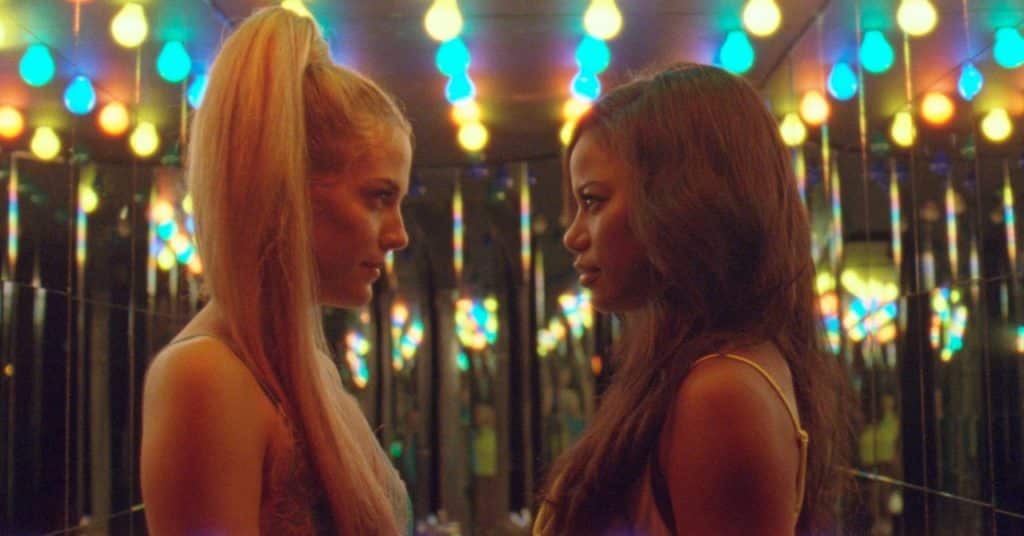
Back in 2015, a Twitter thread by A’Ziah “Zola” King went viral. Now adapted for the screen by Janizca Bravo & Jeremy O. Harris, the film details the tumultuous happenings of its title character (here played by Taylour Paige) as well as human minstrel show Stefani (Riley Keough). Keough gives some of her best work here, but it’s Paige who holds Zola down with a presence skillfully flipping between caustic and deadpan. Bravo’s direction is similarly energetic, heightened by Ari Wegner’s 35mm cinematography. A road trip comedy, a dissection of race relations, the Internet personified—it largely balances humor with genuine menace in ways appropriate to the approach at hand. [Matt Cipolla]
Read our review here.